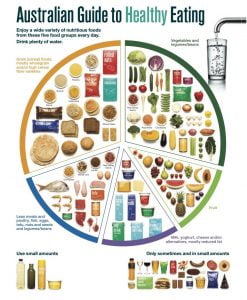
How Diet and Nutrition Impact on Children’s Dental Health
Everyone knows that our children’s early years are an important time for establishing healthy habits, including those that will contribute to their oral health for the rest of their lives.
A big part of the equation is ensuring that parents have the right knowledge and information to feed their children well and set them on the right path.
To find out how diet and nutrition can contribute to good oral health, Middleborough Dental Care’s Dr Alice Yang spoke with Elaine Chen, a dietitian at Monash Health.
Alice: Is there any one thing that you think is the most important message to get across to parents about how they can start teaching their children the right habits from a young age?
Elaine: One of the biggest concerns, from a diet and nutrition perspective but also clearly impacting on oral health as well, is the amount of sugary drinks Australian children consume.
Unfortunately, because the marketing targets children so effectively, it’s a major battle I think we’ll be fighting all the time.
Just drinking soft drinks, cordial, fruit juice, fruit drinks, sports drinks, and energy drinks is a problem, but it’s even worse when toddlers and young children sip those regularly throughout the day.
Not only does that expose their teeth to acid attacks, increasing the risk of tooth decay, but of course there are all sorts of other health implications, including excess weight gain, fussy eating, reduced appetites, and even diarrhoea.
Alice: Yes, and diet soft drinks are no better. They’re also acidic, which means they can contribute to dental erosion – the wearing away of tooth enamel. So, while they may contain less sugar than the non-diet versions, their acidity is comparable.
What do you encourage parents to give their children to drink?
Elaine: Well, the healthiest option is fluoridated tap water – that’s both from the overall diet and health perspective and specifically focusing on oral health, as well. Fortunately, it’s also the most accessible and inexpensive option, too.
The big plus that we hope will help parents teach their children to think of water first as well as enjoy drinking it is that it is the most effective thirst quencher and gives your body the hydration it needs.
If you prefer bottled water, just be aware that not all bottled waters contain fluoride, so make sure you choose one that does.
We also want people to be aware that some filtration systems remove fluoride from water, so that’s not what you want. However, boiling or freezing water doesn’t remove or destroy the fluoride content.
Alice: What about milk?

Elaine: In their first year, at least, babies should mainly drink breastmilk or infant formula. Definitely no cow’s milk before their first birthday.
From 12 months on, we encourage at least one glass of milk a day. That accounts for about half of the recommended daily consumption of dairy.
As you know, milk is an excellent source of calcium, which is very important for strong, healthy teeth.
Alice: I see a few young children with ‘bottle tooth decay’, which can occur when there is frequent and long-term exposure to milk at night time. The sugars in the milk pool around the infant’s teeth and gums, feeding the bacteria that causes dental decay if we don’t brush teeth after drinking milk.
Moving on to food, what are the main considerations for making sure children’s diets are contributing to good oral health, rather than being detrimental?
Elaine: Starting with the negative, we know that the more processed and sugary foods a child eats, the more likely they are to experience tooth decay. A good oral care regimen can only go so far to mitigate the impact of the carbohydrates we consume, so it makes a lot of sense to limit the intake of food containing added sugar.
One thing that parents will understand is that children often need snacks between meals, and this should be seen as an opportunity to ‘train’ healthy food habits, such as eating fruit, vegetables, dairy, and so on.
You can start building these habits even before a child’s first birthday, with things like pureed fruit, eggs, toast fingers and rusks, peanut butter, pasta, pieces of cheese, custard, and yoghurt.
Alice: Are we talking about the five food groups?

Elaine: Absolutely. While it might not be possible to ensure your children consume the recommended daily amount of food from each of the five groups every day, you should be trying to put the right foods in front of them as often as possible. That’s the foundation of healthy eating habits.
Hopefully, dairy is quite straightforward – milk, cheese, and yoghurt are not only readily accessible but relatively attractive to children – and you can find some fruits and vegetables that your children like.
Grain foods, whether that’s cereals, bread, rice, noodles, or pasta, give your child the energy she needs to grow, develop, and learn. Children love these foods which are usually their number one choice.
In particular, we encourage the inclusion of a good variety of meat, fish, poultry, eggs, nuts, and legumes from a young age, as that makes it more likely that children will accept these key components of a healthy diet as the norm.
Alice: So that’s from a nutritional perspective – the ideal balanced diet – but how does that impact on oral health?
Elaine: There are a number of vitamins and minerals that you’ll get through a healthy balanced diet that contributes to good oral health.
We’ve already touched on calcium, which we know helps build and strengthen bones and tooth enamel.
It’s also important to get enough potassium, phosphorus, and vitamins A, C, D and K.
Vitamin D is more associated with exposure to sunlight, but you can get it in fatty fish, canned tuna, and portobello mushrooms.
Like vitamin D, potassium (bananas, avocadoes, tomatoes, potatoes, lima beans) and phosphorus (seafood, lentils, pumpkin seeds, beef, pork, cheese) support the absorption and effectiveness of calcium in building bone strength and density.
Vitamin C (citrus fruits, leafy greens, potatoes) strengthens your gums and the soft tissue in your mouth, while vitamin A (fish, egg yolks, liver, orange-coloured fruits and vegetables, leafy greens) helps keep mucous membranes healthy, which also helps your mouth heal more quickly.
If you can teach your children to enjoy at least some green vegetables – broccoli, Brussel sprouts, spinach and kale in particular – the vitamin K they contain helps block substances that break down bone and helps your body produce osteocalcin, a protein that supports bone strength.
Alice: Is there an overall message you’d like to get across to parents, regarding what they give their children to eat?
Elaine: I think because parents want their kids to be happy, sometimes they give in to them too easily. I would really encourage parents to stick to their guns, explain how important healthy eating is, especially to growing bodies, and just keep trying to find the healthy foods their kids like.
If you keep giving them cheese or carrot sticks as a snack, they might complain every now and then, but if they’re hungry they’ll eat what you give them. And, once they get used to eating good things, it becomes less of a battle.
On the other hand, if you let them have sugary drinks, chips, sweets, and those unhealthy things whenever they want, you’re going to be fighting a losing battle trying to persuade them to have a piece of fruit instead of a piece of chocolate.
So, start early and be firm. Oh, and also set a good example. If you maintain a healthy diet, it’s much easier for them to understand that it’s the same rules for all of us.